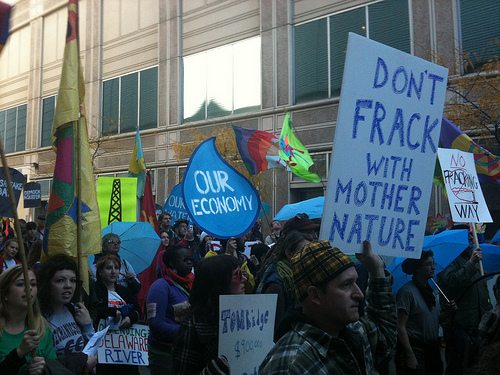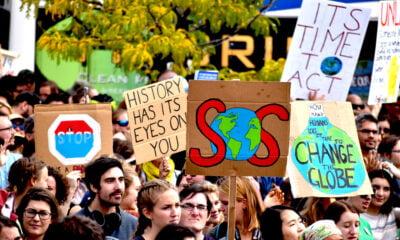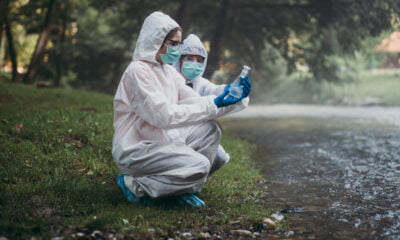

Energy
Gas: earthquakes, explosions and energy
Amid protests at a Sussex fracking site where Cuadrilla has begun exploratory drilling for shale gas, Ilaria Bertini digs deep into just how sustainable gas is in the long-term.
There has been much debate around natural gas and shale gas of late. Natural gas accounts for more than 20% of global energy. It is a combustible mixture of hydrocarbon gases, primarily methane but also including ethane, propane, butane and pentane.
Gas is the nicest of the bad guys. It is the cleanest fossil fuel, emitting 30% less CO2 than oil and 45% less than coal. It is used for cooking, heating and electricity and leaves no waste to dispose. In the US, a boom in the gas sector has led to a drop in gas prices.
But is it a clean energy source? Not quite. Although it emits less greenhouse gases than other fossil fuels, oil and coal, it cannot be defined as a clean source of energy, because methane, despite having shorter lifespan in the atmosphere than CO2, has greater warming potential because it traps the heat more easily.
It is not only the environmental impact of gas and its finite nature that worries opponents, though. In fact, many have pointed out that gas extraction involves a number of safety risks, from mines to plants.
The explosion at the Blue Rhino propane plant in Tavares, Florida, last month, where eight people were injured, is the latest in a series of similar incidents which, although rare, pose key questions on how socially sustainable gas is.
When it comes to shale gas, the scenario becomes slightly worse. Shale gas is extracted from shale rocks, through the injection of chemicals in the ground.
The boom in the US has brought to light a number of concerns related to groundwater contamination, most evident in places like Pennsylvania, as well as earthquakes.
In fact, some scientists suggest that the severity of earthquakes could be amplified by fracking. Not only could the activity lead to minor tremors – unsurprisingly, given it often consists of small explosions beneath the surface – but major damage could occur as a result.
The government here in the UK strongly supports shale gas extraction, introducing tax breaks and speaking positively about the “major reserves” found in Lancashire and Yorkshire.
Exploratory drilling by Cuadrilla in Balcombe, Sussex, has already sparked controversy and led to the arrest of dozens of protestors.
Dutch bank Rabobank recently took the unprecedented steps of announcing that it would refuse loans to businesses involved in shale gas. Meanwhile French president Francois Hollande has stressed his complete opposition to the activity in France.
Given all these things, and the fact that the economic benefits of shale gas are so far unknown, it would be unwise for the government to give fracking long-term support when we have an abundant supply of clean energy on our doorstep.
Further reading:
Cuadrilla fracking plans go ahead in Sussex despite local protests
Cuadrilla to begin ‘exploratory’ shale gas drilling in Sussex
Fracking firms warned over risks after report suggests it could reduce bills
UK shale gas reserves could exceed expectations
Too early to say’ whether fracking will reduce bills, say MPs


 Features11 months ago
Features11 months agoEco-Friendly Cryptocurrencies: Sustainable Investment Choices

 Energy11 months ago
Energy11 months agoThe Growing Role of Solar Panels in Ireland’s Energy Future

 Energy10 months ago
Energy10 months agoGrowth of Solar Power in Dublin: A Sustainable Revolution

 Energy10 months ago
Energy10 months agoRenewable Energy Adoption Can Combat Climate Change




























